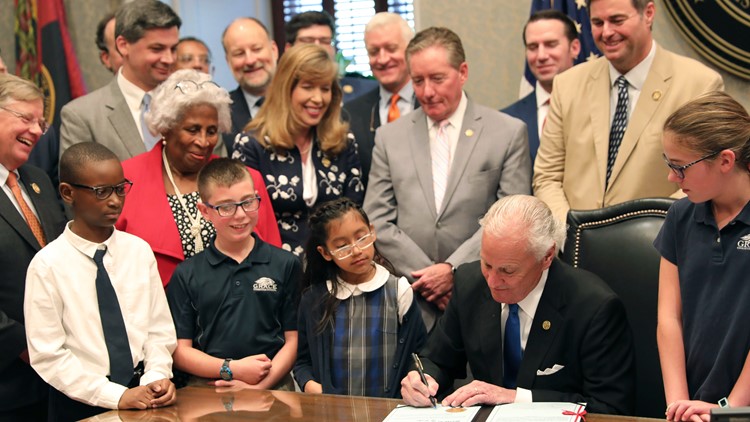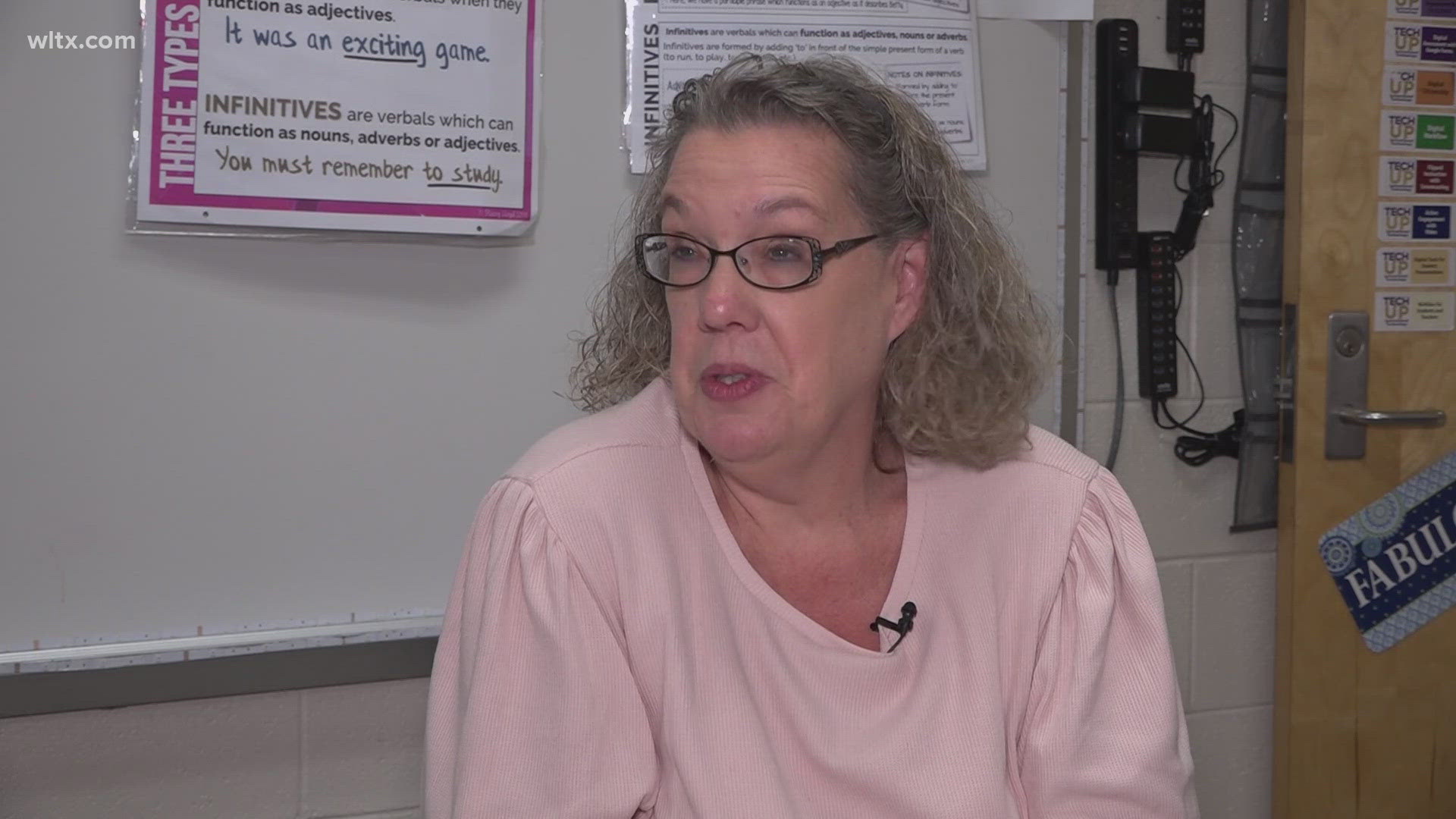COLUMBIA, S.C. — A group of South Carolina parents and teachers' advocates filed a challenge Thursday to a new Republican-backed law allowing taxpayer dollars to help families pay for private schools.
Up to 15,000 students will eventually access $6,000 annually in publicly funded savings accounts that can be used toward private K-12 tuition. The South Carolina Education Association and the state chapter of the NAACP want the state's highest court to toss out the program that they said runs afoul of a prohibition on using government funds to benefit private educational institutions directly.
Plaintiffs say the voucher program violates several other sections of the South Carolina Constitution. They argue the state is failing its duty to provide a “system of free public schools open to all children” by covering costs at private schools that are neither free nor open to all.
The challengers expressed concern that state money would go to private schools that could discriminate against their disabled or LGBTQ children while undermining support for rural districts and exacerbating segregation.
According to the plaintiffs, the law also “impermissibly” expands the authority of the state Superintendent of Education beyond her role overseeing public education by tasking her office with administering the program.
Republican Gov. Henry McMaster told reporters on Thursday that the money goes to parents, not schools — a move that makes him confident the law will stand. Plaintiffs noted that parents would only select the school where funds get sent from accounts controlled by the state Department of Education.
One lawmaker central to the effort also expressed certainty in the program's constitutionality.
“On behalf of the parents and children of our state, I’m looking forward to a quick victory in favor of disadvantaged students who deserve better,” Republican state Sen. Larry Grooms wrote in a statement to AP.
The Republican-controlled state Legislature passed the decades-long priority this year amid a wave of GOP support for the “school choice" movement. Groups that study the programs report that as many as 16 states have some form of vouchers. Families in South Carolina are slated to begin taking advantage of the program next fall, but other states are already seeing more people take the offer than officials anticipated.
Supporters expect the vouchers to expand opportunities for students in districts that aren't meeting their needs and increase guardians' control over their children's learning environments.
The measure's largely Democratic opponents argued the funds would be better spent improving under-resourced public schools rather than subsidizing the high tuition costs at unaccountable private educational institutions.
Officials may have another option in the event the program does get struck. The South Carolina House has already passed a bill to let voters decide if they should jettison a state constitutional amendment that could stand in Republicans' way. Whether to maintain a provision barring the use of public funds for the direct benefit of religious or private schools would make the ballot at the next general election if the measure gets two-thirds support in the state Senate.
___
Pollard is a corps member for the Associated Press/Report for America Statehouse News Initiative. Report for America is a nonprofit national service program that places journalists in local newsrooms to report on undercovered issues.



